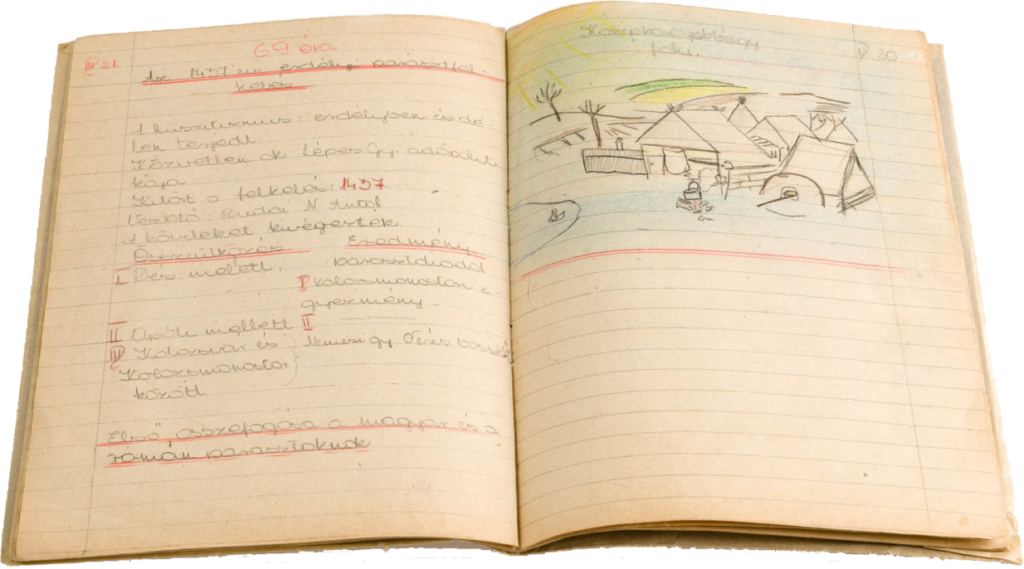SCHOOL DOCUMENTS OF THE REVOLUTIONARY’S CHILD / Júlia Vásárhelyi
Class Register
Following the suppression of the Hungarian Revolution of 1956, the members of Imre Nagy’s government and their families were detained in Snagov (Romania). After a while, the men were taken back to Hungary and tried in court. Many of them were executed, including the prime minister. The class register was written by the family members, who remained in Snagov for years afterwards. When it became clear that they would not be able to return to Hungary in the near future, the families organized a “school” for the children. 13 children between the ages of 0 and 9 were held in Snagov. The parents taught all the subjects, and they also kept the class register. They took the school seriously, and even appointed an inspector. The classes were held in the morning, followed by an afternoon nap for the younger children, while school-age children did their homework. Some entries in the register report that classes were cancelled for the day:
“There were no classes today because a letter arrived from home,” or
“There were no classes today because the children wrote letters home.”
The Copybook of the “Counterrevolutionary’s” Child
Júlia Vásárhelyi, the eldest child of one of the families imprisoned in Snagov, was given back one of her elementary school copybooks after an unexpected turn of events. The copybook was from the time when she went to school in Budapest, and it was found in the street years later by one of her acquaintances on the annual curbside collection days after the death of the headmistress, who used to be a devout follower of the party. It is not known why the headmistress kept the incriminating copybook for 60 years. Perhaps she regarded it as proof that “the counterrevolutionary’s child was still rebelling,” because young Júlia had written the following sentences on the front and back covers:
“It is only worth living in freedom.”
“The independence of our country is lost.”




